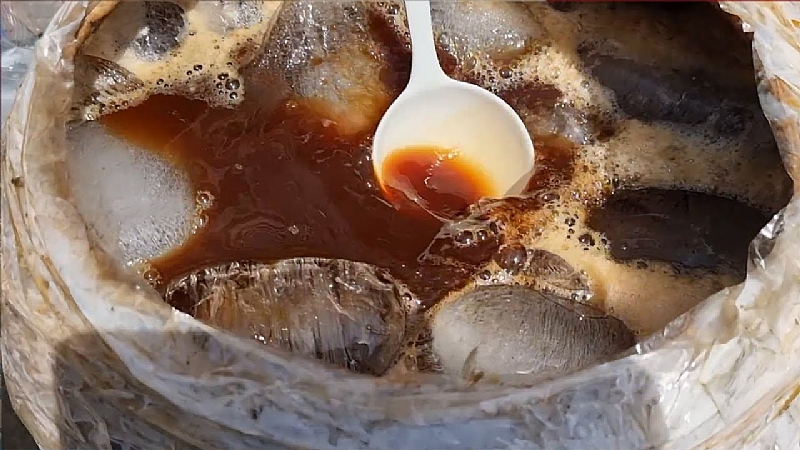Incident Overview:
On Tuesday, a concerning medical incident unfolded in the Ningo-Prampram Constituency of Ghana, involving 22 pupils from two local basic schools: Prampram D/A Basic A and Methodist Freeman Basic School. The incident stemmed from the suspected consumption of a contaminated batch of Asaana, a popular non-alcoholic beverage in Ghana. Asaana, also known as Aliha or Liha, is traditionally made from fermented corn and caramelized sugar, resulting in a sweet, caramelized corn drink. The incident prompted immediate action from local authorities, including the Member of Parliament, the Education Directorate, and the Prampram Polyclinic.
Medical Response and Investigation:
Following the reported incident, a swift medical response was initiated by the Prampram Polyclinic. A total of 22 children, all pupils from the two affected schools, received medical treatment at the polyclinic. The prompt intervention of medical professionals allowed for the majority of the affected children to be discharged after receiving initial treatment and observation. As a precautionary measure, one child was admitted overnight for further monitoring. Concurrently, an investigation was launched to determine the cause of the suspected contamination. The vendor who supplied the Asaana is cooperating with health authorities in the investigation. Samples of the suspected contaminated beverage have been collected and sent to a laboratory for analysis to pinpoint the exact source of the contamination.
Official Statements and Community Reassurance:
Sam George Nartey, the Member of Parliament for the Ningo-Prampram Constituency, issued a public statement addressing the incident. In his statement, Mr. Nartey confirmed the incident, outlined the steps taken by local authorities, and reassured the community of their commitment to the children’s well-being. He specifically acknowledged the efforts of the Education Directorate and the medical director of the Prampram Polyclinic in managing the situation. Mr. Nartey expressed gratitude for the polyclinic’s prompt and professional response, which undoubtedly contributed to the positive outcomes for the affected children. He also conveyed his wishes for a speedy recovery to the pupils. Authorities emphasized their ongoing investigation and commitment to ensuring the safety of food and beverages consumed within the community. Parents were assured that all necessary health and safety protocols are being followed to prevent similar incidents from occurring in the future.
Asaana: A Traditional Beverage and Potential Risks:
Asaana holds cultural significance in Ghana as a traditional beverage enjoyed by people of all ages. Its preparation involves the fermentation of corn, which, if not properly managed, can create an environment conducive to the growth of harmful microorganisms. The fermentation process, while integral to the drink’s unique flavour profile, also introduces potential risks if hygiene and sanitation standards are not strictly adhered to during production and storage. Contamination can arise from various sources, including unclean equipment, contaminated water used in preparation, or improper storage conditions that allow for bacterial or fungal growth. This incident underscores the importance of maintaining rigorous quality control measures throughout the production and distribution of Asaana to safeguard public health.
Food Safety and Public Health Implications:
The incident involving the suspected contamination of Asaana highlights the broader issue of food safety and its direct impact on public health. Foodborne illnesses, resulting from the consumption of contaminated food or beverages, can have significant consequences, especially for vulnerable populations such as children. The symptoms of foodborne illnesses can range from mild discomfort to severe complications, requiring medical intervention. This incident serves as a reminder of the importance of adhering to proper food handling practices, including maintaining hygiene during preparation, ensuring proper storage temperatures, and sourcing ingredients from reliable suppliers. Regulatory bodies and health authorities play a crucial role in enforcing food safety standards and educating the public on safe food handling practices.
Community Vigilance and Prevention:
Moving forward, community vigilance and proactive measures are essential to prevent similar incidents related to food and beverage contamination. Consumers should be encouraged to report any suspected cases of foodborne illnesses to the appropriate authorities. Increased awareness among vendors regarding proper food handling practices, sanitation standards, and the importance of sourcing ingredients from reputable suppliers is crucial. Regular inspections of food vendors and producers can help ensure compliance with safety regulations and minimize risks. Collaborative efforts between health authorities, local communities, and food vendors are vital in establishing a culture of food safety and protecting public health. The incident in Ningo-Prampram serves as a valuable learning opportunity for strengthening food safety practices and ensuring the well-being of the community.














